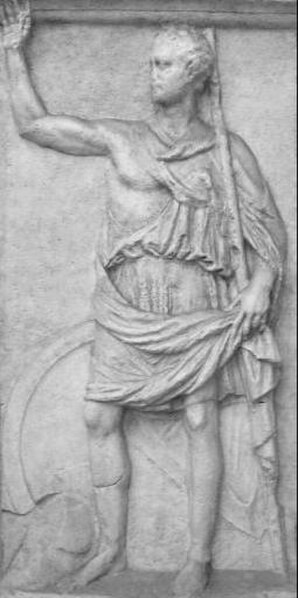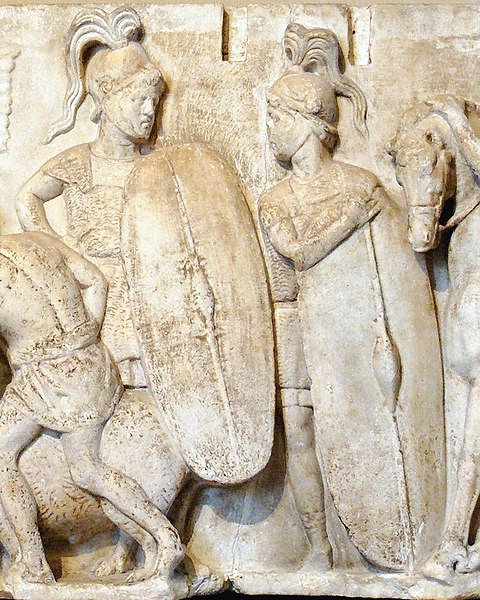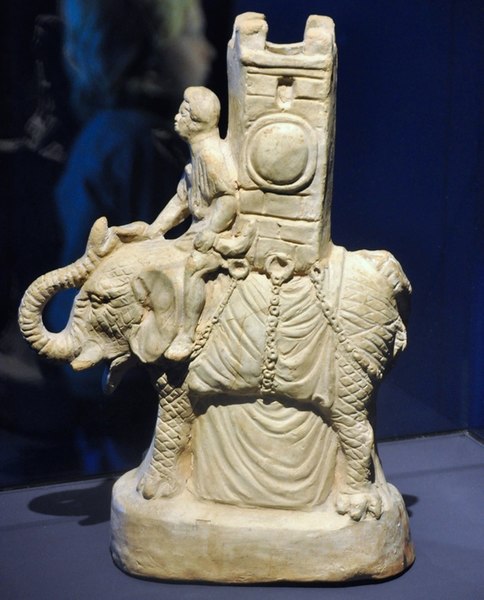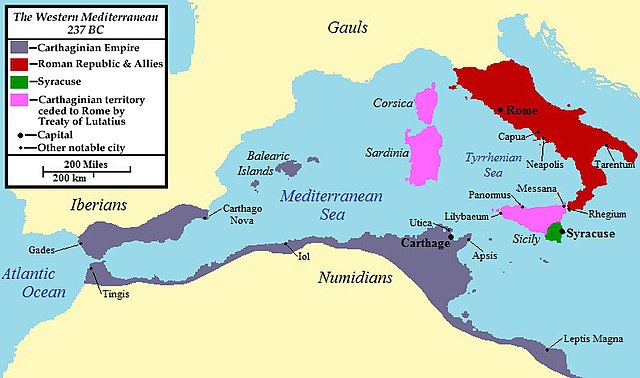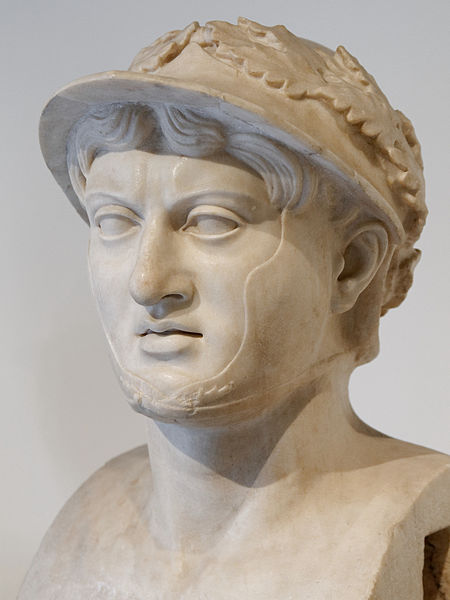The Punic Wars were a series of wars between 264 and 146 BC fought between the Roman Republic and Ancient Carthage. Three wars took place, on both land and sea, across the western Mediterranean region and involved a total of forty-three years of warfare. The Punic Wars are also considered to include the four-year-long revolt against Carthage which started in 241 BC. Each war involved immense materiel and human losses on both sides.
Polybius, the historian whose work "The Histories" provides critical insight on the Punic Wars
Detail from the Ahenobarbus relief showing two Roman foot-soldiers from the second century BC
Roman statuette of a war elephant recovered from Herculaneum
Territory ceded to Rome by Carthage under the treaty is shown in pink
The Roman Republic was the era of classical Roman civilization beginning with the overthrow of the Roman Kingdom and ending in 27 BC with the establishment of the Roman Empire. During this period, Rome's control expanded from the city's immediate surroundings to hegemony over the entire Mediterranean world.
Roman Republic
The "Capitoline Brutus", a bust possibly depicting Lucius Junius Brutus, who led the revolt against Rome's last king and was a founder of the Republic.
Bust of Pyrrhus, found in the Villa of the Papyri at Herculaneum, now in the Naples Archaeological Museum.
Coin of Hiero II of Syracuse

